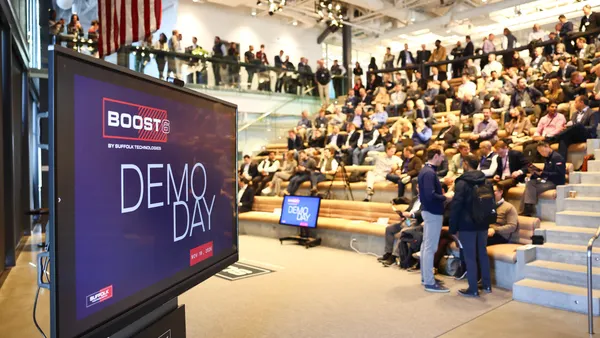Dive Brief:
- T-Mobile Arena joint venture partners Hunt Construction Group and Penta Building Group are suing insurance broker Aon Risk Services South amid claims the contractors experienced a $1.3 million loss in profit on the $230 million Las Vegas project when the contractor-controlled insurance program (CCIP) Aon set up for the project did not provide the promised savings, according to the Engineering News-Record.
- The JV team is claiming professional negligence and breach of contract on the part of Aon, which it said did not understand Nevada workers' compensation rules and overstated the possible savings of a CCIP in that state.
- Hunt-Penta said it relied on Aon's CCIP savings projections when it submitted its bid for the arena, resulting in a price the JV said proved to be too low.
Dive Insight:
A CCIP, also known as a wrap-up policy, is a form of self-insurance for large construction projects that covers all of the contractors, subcontractors and other project players under one blanket policy. Hunt-Penta alleged that Aon had no previous experience structuring CCIPs in Nevada and said the insurer wasn't aware that workers' compensation premium calculation rules in the state greatly lowered the potential for CCIP savings.
Aon attorneys have filed a motion to dismiss the case, claiming that purely economic losses are not recoverable in this circumstance and that any mistakes Aon might have made in calculating premiums were not actionable because those issues were not included in the parties' agreement. A legal expert told the ENR that this case is the first instance he has seen of a general contractor "suing for their lost profits on a job."
It is becoming more common for prime contractors on very large projects to use a CCIP in order to control costs and to ensure everyone on the project is insured. This eliminates, for one thing, having to monitor and track individual company insurance policies, a costly time killer on most projects.












